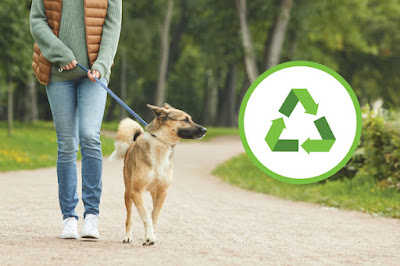It is no secret that climate change is an issue for humanity with various extreme meteorological conditions observable worldwide; from bone-dry draughts to torrential rains, weather patterns have been far from predictable. Humanity is aware of this issue, with steps being taken to reduce emissions of CO2 and other greenhouse gases.
Awareness
is a wonderful thing; however, it does not change the fact that the act of
travelling in general is not exactly the most eco-friendly. Regardless of the
mode, by road, rail, or air, each mode of transportation causes an impact on
the environment, the most common ones being pollution & carbon emissions.
Therefore,
as the world grows smaller and smaller, and as global pet travel is set to
increase in frequency, it is only right that we consider the impact our travels
have on the environment, and how could we go about reducing our carbon
footprint for more eco-friendly pet travel.
Here Are A Few Ways You Can Make Your Pet Travel More Eco-Friendly.
- Switch to Compostable Poop Bags - All
pet owners are encouraged to clean up after their pets outdoors to ensure a clean
and hygienic public space for all. However, since pet excrement is collected
and tossed in plastic bags which end up in landfills, this is hardly an
environmentally friendly solution. Switch to compostable disposable bags so
your pet's waste can be disposed of safely and productively. Make sure to read
up on the bags and what they're made of, as anything that isn't plant-based
will likely not decompose and will act as a pollutant.
- Fly Directly & Avoid Layovers - While
it may be an obvious piece of advice, flying on direct flight routes instead of
opting for any connecting routes helps reduce emissions. It is inevitable at
some point you’ll need to board a flight to reach your destination, but you can
do your part by choosing to fly a direct route instead of one with stops and
layovers. An aircraft produces the highest level of emissions during takeoff
and landing, so cutting out that connecting flight does make a difference. For
pet travel, especially international pet travel, most airlines will not permit
pets on ultra-long-haul flights or ones with multiple layovers as it adversely
affects their health. So, flying direct routes is the best choice for your pet
and the environment.
- Choose an Eco-Friendly Hotel - Hotels
are no strangers to waste; as a result, choosing eco-friendly living quarters
for your stay can make a difference when travelling. An eco-friendly
establishment will have implemented practices like recycling and offering local
cuisines rather than curating an expensive and imported menu.
- Carry Reusable Water Containers - Hydration
is an essential requirement for all living beings. Relying on plastic bottles
from roadside stops is hardly the most practical solution or the most
cost-efficient one, so carrying your own reusable water bottle will help you
steer clear of the excess plastic. If you’re flying with your pet, food and
water bowls can be attached to their crate for on-the-go hydration. If you’re
travelling by road or train, make sure to carry an extra bottle and your pet’s
water bowl for refreshments.
- Use Public Transportation - If
you have the opportunity, use public transport whenever possible. Vehicles are
one of the biggest sources of greenhouse gas emissions, and alternative methods
of travel like public transport or carpooling offer a greener alternative for
travel. Remember to check whether the public transport of any area you’re
already in or visiting allows pets on board. Most cities that are renowned for
being tourist attractions or pet-friendly will have provisions for pet travel
on public transport, which will make your journey both greener and easier.
- Swap Plastics for Fabrics - Nearly everyone knows how harmful plastics are to the environment. Besides poop bags for your pet, swap plastic or paper bags with a more long-lasting cloth or jute alternatives. There's nothing greener than carrying your carry bags and there's the bonus of not having to look for or buy wasteful plastic/paper bags around your destination.
To
conclude, travelling of any form is fundamentally harmful to the environment,
but that doesn’t mean we can’t take steps towards making it less so. Remember
to minimize flying and only fly direct routes when you must. Sharing public
transport and reusing containers/bags helps reduce the amount of waste
generated on your travels. If everyone does their little part in waste
reduction and promotes efficiency, pet travel can become as green as grass.




No comments:
Post a Comment